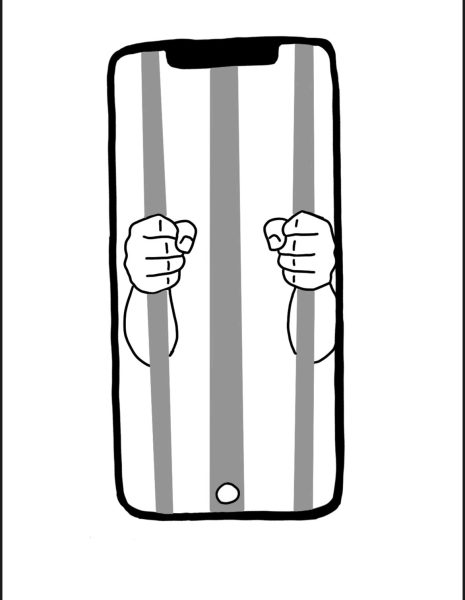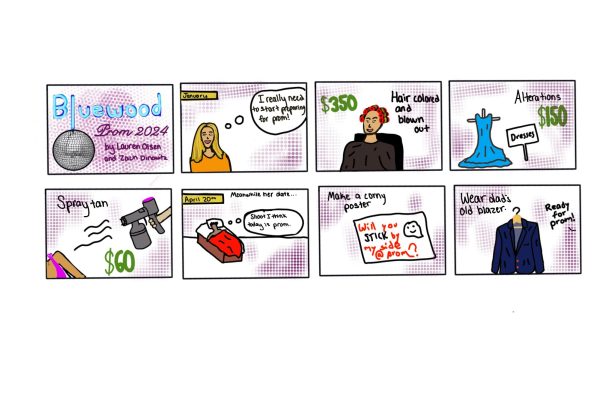Arianna Delane’s story should be her own
March 2, 2022
“My daughter jumped up and said, ‘Daddy, I’ve been hit’ and I was shocked until I seen the blood and I realized my 4-year-old daughter was really hit,” Derrick Delane told American Broadcasting Company (ABC) Houston station KTRK in an interview. “She didn’t know what was going on. She was asleep.”
On Jan. 1, 2022, gunfire erupted on the second floor of Arianna Delane’s apartment. Just before three in the morning, she was shot and wounded while sleeping. The Houston police did not arrive until 7 a.m., four hours later, which is an unusually delayed response. In 2019, the Houston Assistant Chief of Police Henry Gaw claimed that their police officers typically respond to Priority One calls, like the Delane’s, within 5.5 minutes.
Without police assistance, Arianna’s mother rushed her to the hospital, where Arianna underwent surgery and fortunately survived. The bullet entered her torso, puncturing her lung and liver and bruising three ribs. News of this event spread quickly with well-known publications reporting on Arianna’s story.

However, in all media content covering the shooting of Arianna, authors neglected to refer to Arianna by her name, but rather employed a different title to draw more attention: George Floyd’s niece.
Floyd made international headlines in 2020 when he was murdered by police officers in Minneapolis, Minn. His death sparked a widespread outcry against police brutality and inspired 4,700 racial justice demonstrations by the end of June 2020.
Due to Floyd’s substantial impact on the Black Lives Matter movement, the majority of headlines reporting on Arianna’s story have some correlation to Floyd, and hardly any of them mention “Arianna Delane” by name. The fact that Arianna is Floyd’s niece has more importance than the shooting itself. One headline states, “Niece of George Floyd ID’d as girl shot in Houston home on New Year’s Day,” and another reads “George Floyd’s niece wounded in New Year’s Day shooting.” As of now, Arianna does not have her own story; she is just an accessory to Floyd’s and an excuse for publications to gain more readership.
Regardless of how important Floyd was, Arianna’s story should not be overshadowed by her uncle. The injustices Arianna faced are valid and should be at the forefront of these reports. Arianna has her own story — one that almost took her life and one that she will never forget. It is necessary to keep these accounts separate, as Arianna’s name should first be associated with someone who is resilient and brave, not as the relative of Floyd.
Andrea Collier, a multimedia journalist and award-winning author, advocates for storytelling through literature and speeches. In one of her articles titled “Why Telling Our Own Story Is So Powerful for Black Americans,” Collier cites Virginia Hamilton, the author of “The People Could Fly,” when describing the origins of storytelling. Hamilton stated that storytelling was the first opportunity for Black people to “represent themselves as anything other than property” in offering one explanation as to why individual storytelling, especially for the Black community, is necessary.
“There is no question that storytelling for black America is a way of saying ‘I am here and I matter,’” Collier writes.
Collier is referring to storytelling in general, and in Arianna and Floyd’s scenario, just because they are relatives does not mean they share the same narrative.
Some might argue that including Floyd’s name will convince readers to become familiar with Arianna’s story as well. Although this may be the case, reporters using Floyd’s name take the spotlight away from Arianna and the injustices she has also faced. Simply changing how we address Arianna will improve this issue, and if subscriptions or views are what news outlets are seeking, alternate headlines centered on Arianna’s narrative would still attract readership. While Arianna waits to tell her own story, it is important we ensure she will have a platform when the time comes. This includes drawing attention to her account through education and awareness, so Arianna can share her experiences.
Using popular names to get attention is an issue, and, in this case, it overshadows someone who deserves her own story. In fact, according to a February Bark survey, 79 percent of Redwood students have not heard about Arianna’s shooting. This shows that the majority of students possibly do not know Arianna’s story for two reasons: either they know the shooting through the title of Floyd’s niece, or they have never heard of this horrific event. If this is the case, it turns into a Redwood problem as students are not well-educated on current events. Change needs to occur so students can understand how Arianna’s shooting shows that systemic racism is built into institutions. There is a reason why the police arrived so late, and whether it be the color of her skin or her relation to Floyd, Arianna’s story is important because it highlights yet another flaw within establishments, one that might be overlooked.
Students at Redwood need to be educated about these events and what is happening outside of Marin. Whether this is the responsibility of publications, Administration, Student Leadership Anti-Racism or the students themselves, change needs to be made. We need to know Arianna Delane’s name.





















